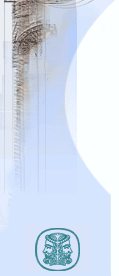
 |
 |
Slavenko TERZICRELIGION AS A FORMING FACTOR OF SERBIAN IDENTITYReligious factor had an important role in the history of the Serbian people as well as in the history of the Balkans and the whole Europe. However, scientific research still has not emphasized its significance for the formation of the Serbian national identity, especially during the national renaissance in the 19th century. A more profound explanation of this phenomenon exiges, besides traditional historiographic approach, a contribution of kindred scientific disciplines, such as historical psychology, anthropology and studies in the history of mentality, i.e. collective consciousness. This paper focuses on the role of religious factor in the modern constitution of the Serbian nation during the 19th and 20th century. h compares experiences of the national integration of West-European nations, such as German and Italian, with experiences of the national integration of Serbs. This is known as the problem of relationship between ethnical and religious factor in the process of national integration. After the Ottoman conquests in the second half of the 15th century, the Serbs entered a multicenntenial epoch of living under the foreign domination, especially that of the Ottoman Empire and Habsburg Monarchy. Destruction of the Serbian state and society, obliteration of the whole social structure of the Serbian medieval civilization and of the major part of the social elite, launched the complex process of internal disintegration of the Serbian people. In the first place, religious divisions were so profound that Serbs could not mend those fissures in their ethnical tissue during the process of their constitution into a modern nation. A significant number of Serbs in Old Serbia, Bosnia, Herzegovina and Montenegro adopted Islam. On the other hand, many Serbs in the areas dominated by Habsburgs and in Herzegovina, dominated by Turks, embraced Roman Catholicism. During the 79th century, a significant number of Roman Catholic Serbs began to consider themselves a part of the Croatian nation. However, until the Second World War, and sporadically even after, there was a group of Catholic Serbs, especially in Dubrovnik and Dalmatia, whose members, among others, were Medo Pucic and Matija Ban. National policy of the Yugoslav Communist Party had a decisive role in suffocating the nationality of this religious group of Serbs. The process of national self-determination of the Serbs who accepted Islam was even more complex. During the 19th century, religious identity was predominant among them. Only a minor number considered themselves Serbs of Islamic religion, among them Osman Dikic, Omer-beg Sulejmanpasic Skopljak, Dervis-beg Ljubuvic, Sukrija Kurtovic and Mesa Selimovic. Historical researches have shown that religious factor strongly marked the process of Serbian national integration. On one hand, this was due to the weakness of internal integrative factors, and on the other, to the fact that religious moment was used by external forces, particularly by Austro-Hungary, to disintegrate the Serbian ethnic entity. However, the fact that Serbian national integration did not follow the standards of European national movements was mostly due to the influence of the European policy.
|